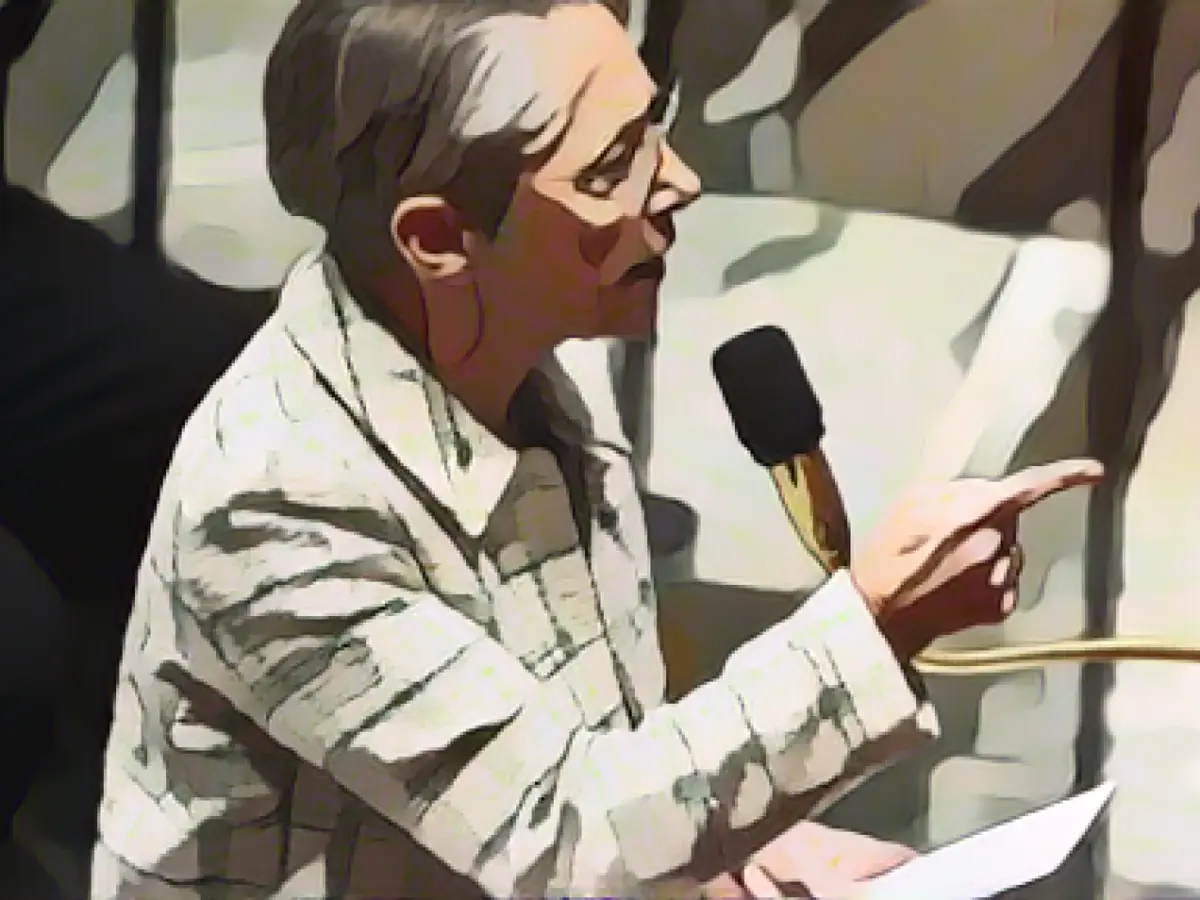France's immigration law causes political tensions in France
The left-wing opposition denounced "the worst racist and xenophobic text in 40 years", while the right-wing nationalist group leader Marine Le Pen spoke of an "ideological victory". Around a quarter of the government camp voted against or abstained. The law still has to be signed by Macron before it can come into force.
Government spokesman Olivier Véran confirmed Rousseau's resignation at midday. The health minister did not take part in the cabinet meeting, he said. However, there was "no movement of a ministerial revolt". Prime Minister Elisabeth Borne spoke of possible contradictions with the constitution, but also denied that there was a crisis in the government camp.
For President Macron, the immigration law was to be one of the most important reforms of his second term in office. However, the compromise worked out by the mediation committee within a few hours and now adopted is much stricter than the government's first draft. Among other things, it stipulates that migrants who work in sectors with staff shortages should only be granted the right to stay in individual cases. Originally, this was to apply to everyone.
In future, non-EU foreigners will have to be in France for five years before they can claim certain social benefits. This point was particularly controversial until recently. According to the right-wing populists, this establishes the "national priority". If migrants are working, the period is shortened; students and recognized asylum seekers are exempt from the time limit.
The right-wing opposition had also tried to replace medical care for migrants with emergency aid only. The abolition of medical care is now not included in the text of the law, but Borne held out the prospect of a change in early 2024.
The Prime Minister admitted that the text that has now been adopted has weaknesses. "For example, if someone marries a Canadian or a Japanese person who doesn't speak French well, they won't be able to come to France. I don't think it can stay that way," Borne told France Inter. "We will appeal to the Constitutional Council."
The conciliation committee was set up because the National Assembly had surprisingly rejected the text in its entirety after the Senate had significantly tightened up the government's first draft. Macron had originally wanted to introduce a "balanced" law that would promote integration on the one hand and facilitate the deportation of migrants without the right to stay on the other.
Read also:
- This will change in December
- Attacks on ships in the Red Sea: shipping companies avoid important trade route
- Houthi rebels want to launch further attacks despite international coalition
- USA forms military coalition against Houthi attacks on ships in the Red Sea
- Despite facing criticism from the left-wing opposition calling it the "worst racist and xenophobic text in 40 years", President Emmanuel Macron still intends for France's immigration law to be one of his key reforms during his second term.
- The resignation of Health Minister Aurélien Rousseau was confirmed by government spokesman Olivier Véran after he did not attend the cabinet meeting, but there was no indication of a larger ministerial revolt.
- Marine Le Pen, leader of the right-wing nationalist group, viewed the immigration law as an "ideological victory" despite its tightening by the mediation committee.
- The immigration law, which will require non-EU foreigners to stay in France for five years before they can claim certain social benefits, has caused political tensions in France.
- The conciliation committee was formed after the National Assembly rejected the initial immigration law draft, with the Senate subsequently making significant changes to it, further tightening its provisions.
- Prime Minister Elisabeth Borne acknowledged that the finalized immigration law has weaknesses, such as preventing someone from coming to France if their foreign spouse does not speak French well.
- The amended immigration law now includes provisions that migrants who work in sectors with staff shortages will only be granted the right to stay in individual cases, a change from the initial plan to apply this to everyone.
- The right-wing opposition's attempt to replace medical care for migrants with emergency aid only was not included in the final immigration law, but Prime Minister Borne pledged to reconsider it in early 2024.
Source: www.stern.de







